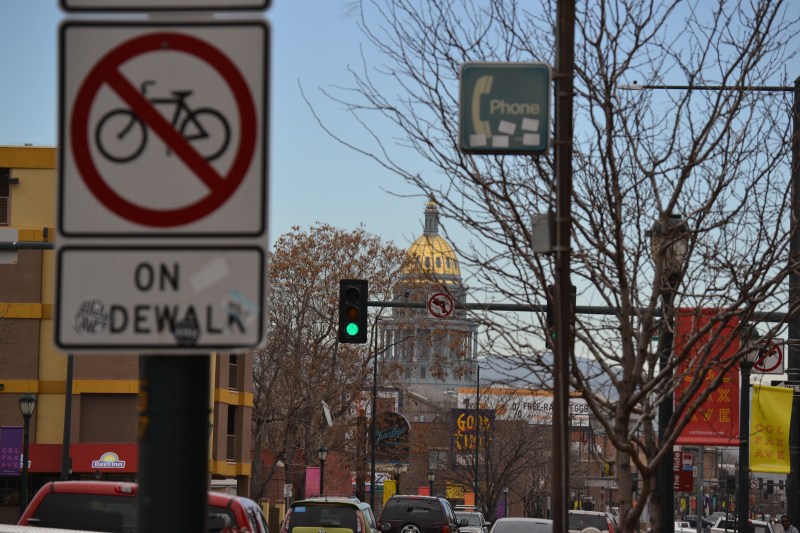Driverless Cars: Will Colorado Legislators Put People or Profits First?

A bill making its way through the Colorado Senate would make it illegal for Denver and other cities to create automated vehicle laws tailored to their streets. Instead, municipalities — urban and rural alike — would have to follow whatever regulations state lawmakers come up with.
In its rush to get automated vehicles on the road, will Colorado prioritize safe city streets or a burgeoning multi-billion industry?
When it comes to automated vehicles, the Colorado Department of Transportation has made clear that the Centennial State is open for business, and Senate Bill 213 does the same. Job creation, private investment, and building on “Colorado’s reputation as a hub for advanced technologies” get plenty of play in the bill’s first draft.
CDOT has also gambled on car tech to save lives while streets designed for the 1950s continue to kill people. The bill glosses over the problem of poor street design, stating, “because human error contributes to most crashes, the use of automated driving systems could reduce traffic fatalities by up to 90 percent.”
In the meantime, automated vehicles are an unknown quantity at best, a deadly hazard to people walking and biking at worst. A video camera caught one self-driving car in San Francisco blazing through a red light and a pedestrian crosswalk (Uber blamed the human behind the wheel). Another robo-car, operating with unproven technology on bustling city streets, threatened bicyclist safety.
“Automated vehicle technology gives cities the opportunity to ensure that all vehicles are following the speed limit, for example, and that speed limit should be something that’s compatible with human life, with people walking and biking,” said Corinne Kisner, director of policy for the National Association of City Transportation Officials.
The prospect of human operators who don’t know how partially automated vehicles work getting lulled into carelessness while behind the wheel of partially automated vehicles is why NACTO guides its member cities — Denver is one of them — to ban them on city streets. Fully automated vehicles should be programmed for 25 mph “to support Vision Zero policies” as well, according to a NACTO policy statement [PDF].
It’s “critically important that city transportation professionals have a seat at the table with states when they’re writing these regulations,” Kisner said, because they know, on a granular level, how their streets work when pedestrians, bikes, cars, and transit converge.
Some statewide consistency makes sense, but how does hindering localities from regulating their own streets make them safer? A spokesperson for Rep. Faith Winter, D-35, one of the bill’s sponsors, said she would not comment until after the bill made it to the House, likely with amendments. Co-sponsors Sen. Dominick Moreno, D-21, Sen. Owen Hill, R-10, and Rep. Jeff Bridges, did not return requests for comment.
Denver Director of Transportation and Mobility Crissy Fanganello, who is on the NACTO board of directors, told Streetsblog she’s at the table, but that it’s too early for the city to take a position on the bill.
The Senate Transportation Committee holds a hearing on SB-213 today.


